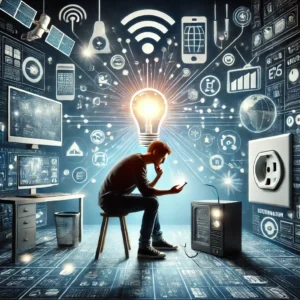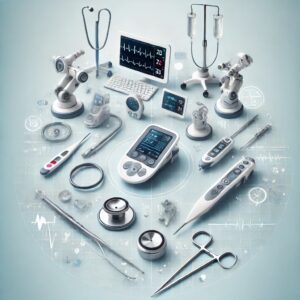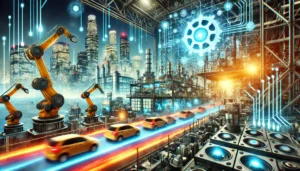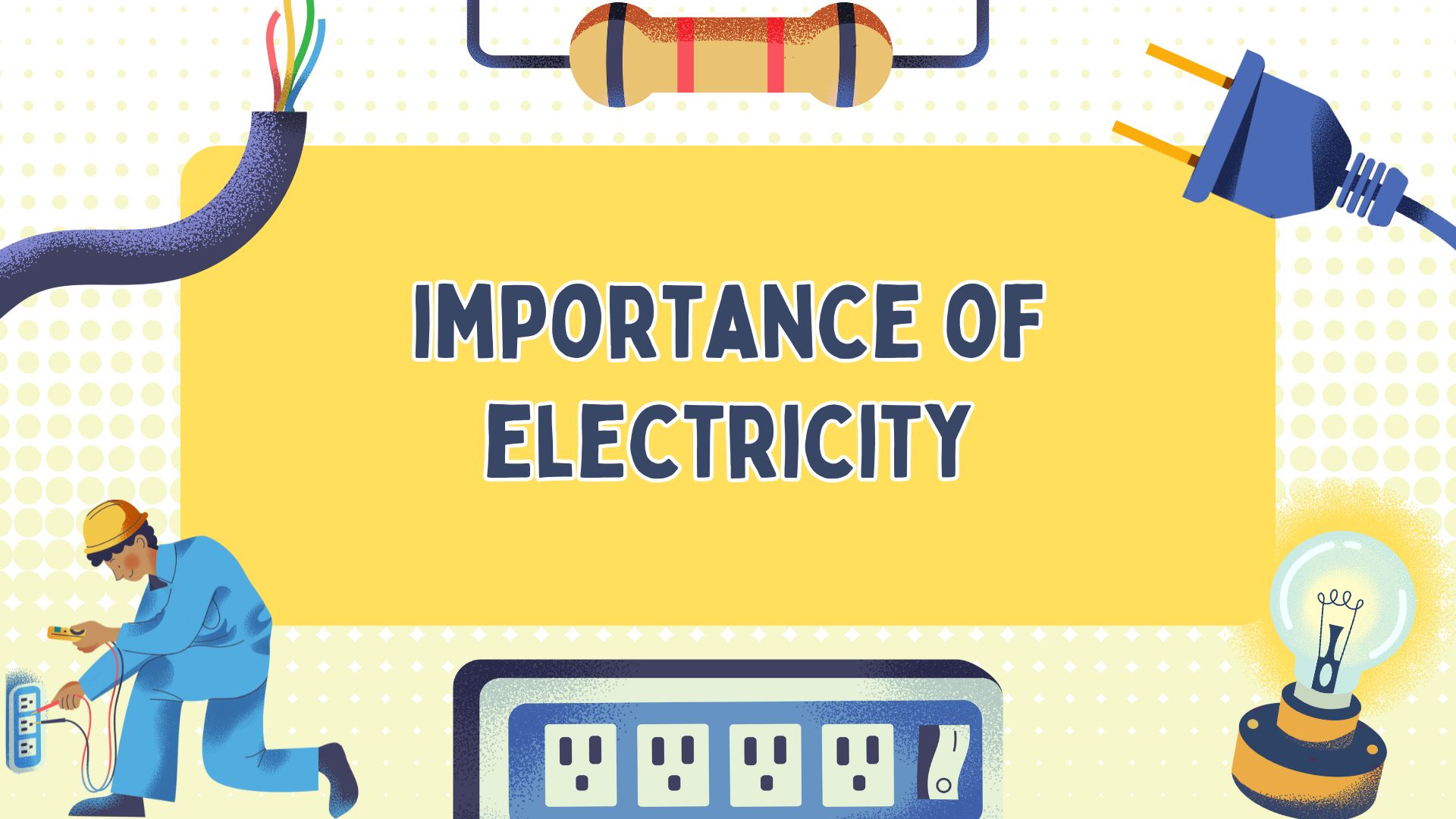Table Of Content [show]
Importance of electricity in our daily life
The importance of electricity in our daily life cannot be overstated. Electricity powers modern conveniences, fuels industrial growth, and drives technological advancements that define the way we live today. This article explores the critical roles electricity plays in daily life, from household applications to global economic development.
Role of Electricity in Modern Conveniences
One of the key aspects of the importance of electricity in daily life is how it powers our homes. Electricity is not only used for lighting but also for a wide range of appliances that make life easier.
The Importance of Electricity for Household Devices
One of the most fundamental roles of electricity in daily life is providing lighting. Before the widespread use of electricity, people relied on candles and oil lamps for light. Today, electric lighting is available at the flip of a switch, offering efficiency, brightness, and safety. Modern lighting systems, from incandescent bulbs to energy-saving LEDs, are designed to meet the needs of homes, offices, and public spaces, making our environment more comfortable and functional.
In addition to lighting, electricity powers a wide range of household appliances that make our daily chores more manageable. Refrigerators keep food fresh, washing machines and dryers save time on laundry, dishwashers reduce manual labor, and ovens help us prepare meals quickly and efficiently. These appliances not only improve convenience but also contribute to better hygiene, health, and overall quality of life.
The Role of Electricity in Communication and Entertainment

Electricity also plays a crucial role in modern communication and entertainment. Smartphones, computers, televisions, radios, and internet routers all rely on electricity to function. These devices have revolutionized the way we communicate, share information, and access entertainment. With the advent of the internet and social media, electricity has made it possible to connect with people across the globe, instantly sharing news, ideas, and personal experiences.
In addition to communication, electricity powers entertainment systems that provide leisure and relaxation. Whether it’s watching a movie, playing video games, or listening to music, electrical devices enhance our quality of life, offering a wide range of entertainment options. In fact, many forms of entertainment, such as virtual reality and gaming, are entirely dependent on electricity and technological innovation.
Healthcare and Medical Devices

In healthcare, electricity has been a game-changer. Medical devices such as X-ray machines, MRI scanners, pacemakers, ventilators, and even life-saving defibrillators all depend on electricity to function. These devices allow for accurate diagnosis, efficient treatment, and even the saving of lives. Electrical energy also powers hospitals and clinics, providing lighting, climate control, and other critical systems that ensure the safety and comfort of patients and staff.
Electricity also facilitates the monitoring and tracking of health through wearable devices such as fitness trackers and smartwatches. These devices measure vital signs and send data to healthcare professionals, improving personalized care and early detection of health issues.
The Economic and Industrial Impact of Electricity in Daily Life
Industries depend heavily on the importance of electricity in daily life to run machines, maintain production lines, and improve efficiency. Without reliable electricity, economic growth would be impossible.
How Electricity Drives Industrial Growth and Productivity

In the industrial sector, electricity is essential for powering machinery and production lines. Factories use electricity to operate automated systems, robots, and conveyor belts that produce goods at scale. The automotive industry, for instance, relies on electric-powered machinery to assemble cars, and the food industry uses electricity to run processing plants that produce packaged goods. Without electricity, modern manufacturing would grind to a halt, and industries would be forced to rely on outdated, labor-intensive processes.
Additionally, electricity powers other critical systems such as ventilation, heating, and cooling in industrial environments. These systems ensure that workers remain safe and comfortable while maintaining optimal production conditions. For example, cooling systems are essential in industries such as pharmaceuticals and electronics, where temperature control is vital to the quality of products.
The Crucial Role of Electricity in Economic Development
Electricity is a cornerstone of economic development. Industries that rely on electricity to power their operations contribute significantly to the economy, providing jobs, boosting productivity, and driving innovation. As countries industrialize and modernize, access to reliable electricity is essential for attracting investment and fostering economic growth.
In emerging economies, the expansion of electricity infrastructure plays a key role in lifting people out of poverty by creating jobs and improving living standards. Small businesses also rely on electricity to operate their enterprises, whether it’s running a café, a retail shop, or a tech startup. Access to affordable and stable electricity can help these businesses thrive, create more jobs, and contribute to the overall growth of the economy.
The energy sector itself is also a significant source of employment. The generation, transmission, and distribution of electricity require skilled workers, from engineers and technicians to power plant operators and line workers. This sector is crucial for economic development, not just in providing electricity but also in creating a broad range of job opportunities.
Electricity also plays a role in global trade and logistics. With the help of electricity-powered systems, industries can efficiently transport goods across the world, ensuring that products reach consumers quickly and safely. The use of electric-powered ships, trucks, and airplanes in the transport of goods makes it possible for countries to exchange goods on a global scale, driving international trade and economic growth.
Electricity and Technological Advancements
The rapid technological advancements we’ve seen in the last few decades wouldn’t have been possible without understanding the importance of electricity in daily life. Innovations like the internet, AI, and renewable energy technologies are powered by electricity.
The Relationship Between Electricity and Innovations in IT
The most significant technological advancements of the past century, particularly in information technology, would not have been possible without electricity. Computers, servers, and data centers all rely on electricity to process and store vast amounts of information. The rise of the internet, cloud computing, and artificial intelligence are directly linked to the availability and efficient use of electricity.
Today, electricity powers the hardware and software that drive innovations in fields such as machine learning, data analytics, and cybersecurity. The ability to process information quickly and efficiently has revolutionized industries such as healthcare, finance, and entertainment, improving service delivery and customer experiences.
How Electricity Fuels Renewable Energy Technologies
The ongoing advancements in renewable energy are directly tied to the progress in electricity generation and storage technologies. Solar panels, wind turbines, and hydroelectric plants all generate electricity, but the development of better energy storage solutions and grid management technologies has made these energy sources more viable. Electricity storage technologies, such as advanced batteries and smart grids, allow for the efficient use of renewable energy, ensuring that electricity is available even when the sun isn’t shining or the wind isn’t blowing.
The push for clean energy is reshaping the global energy landscape, driving efforts to reduce dependence on fossil fuels and mitigate climate change. Advances in electricity production and storage are key to making renewable energy more efficient, accessible, and affordable.
Smart Technologies and the Internet of Things (IoT)
Electricity is also at the core of the Internet of Things (IoT), a network of interconnected devices that communicate with each other via the internet. These smart technologies—ranging from smart homes and autonomous vehicles to wearable health trackers—rely on electricity to function. In smart homes, electricity powers connected devices such as thermostats, lighting, and security systems, making it possible for homeowners to control their environment remotely.
Autonomous vehicles, which rely on electricity for propulsion and advanced sensors, are another example of how electricity is driving technological innovation. These vehicles rely on electrical systems to process data, navigate safely, and communicate with other vehicles, all of which are powered by electricity.
Conclusion
In conclusion, the importance of electricity in daily life cannot be overstated. From powering our homes to driving industry and advancing technology, electricity is integral to our modern existence. From powering household appliances and communication devices to fueling economic growth and enabling advancements in technology, electricity is a force that enables progress in every aspect of society. As we continue to advance technologically and address global challenges such as sustainability, the importance of electricity will only continue to grow. It is the driving force behind the evolution of our world, and its role in shaping the future cannot be overstated.
As we look to the future, the continued development of electricity generation, storage, and distribution technologies will be crucial in addressing the challenges of a rapidly changing world, ensuring that electricity remains a source of empowerment, convenience, and innovation for generations to come.


